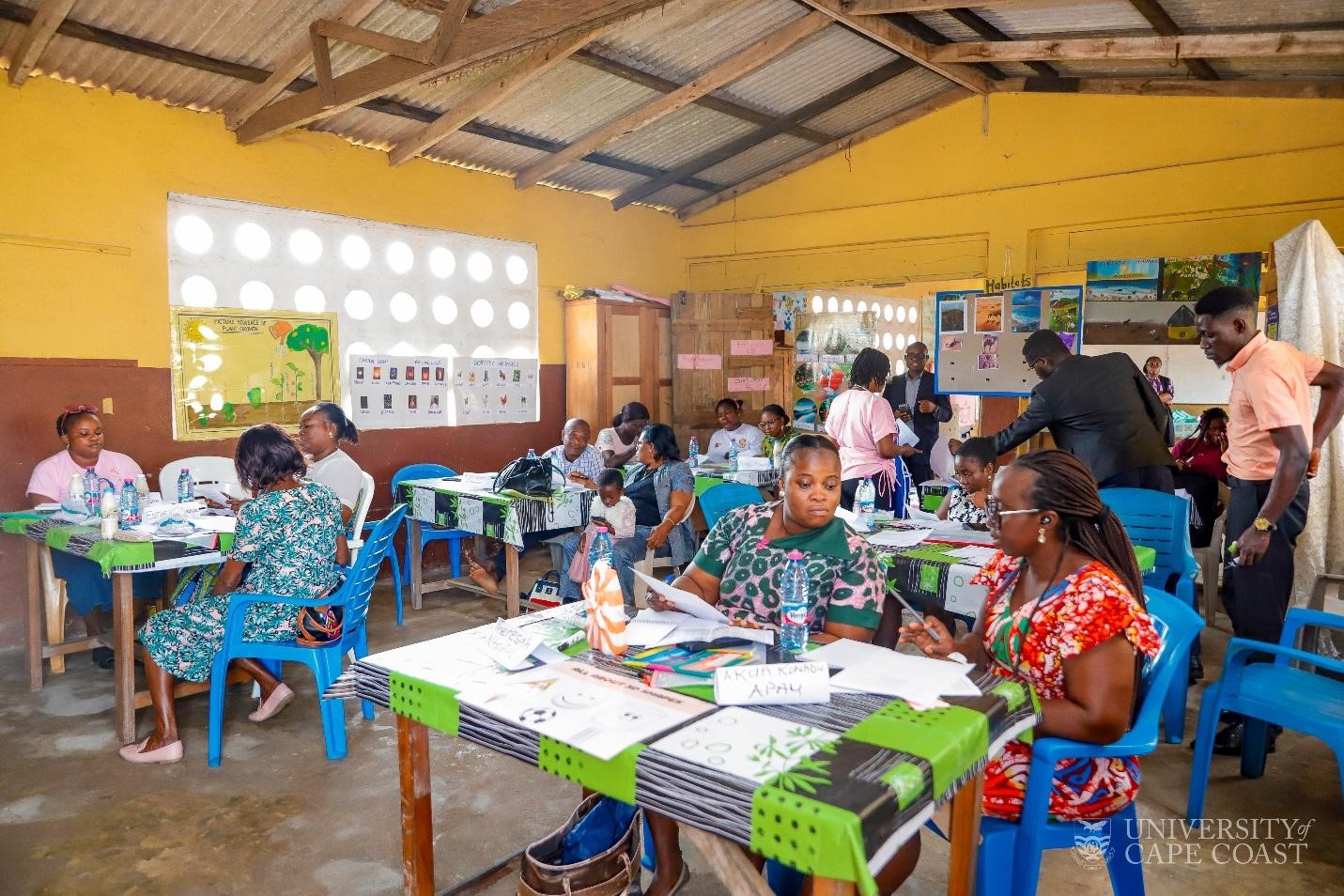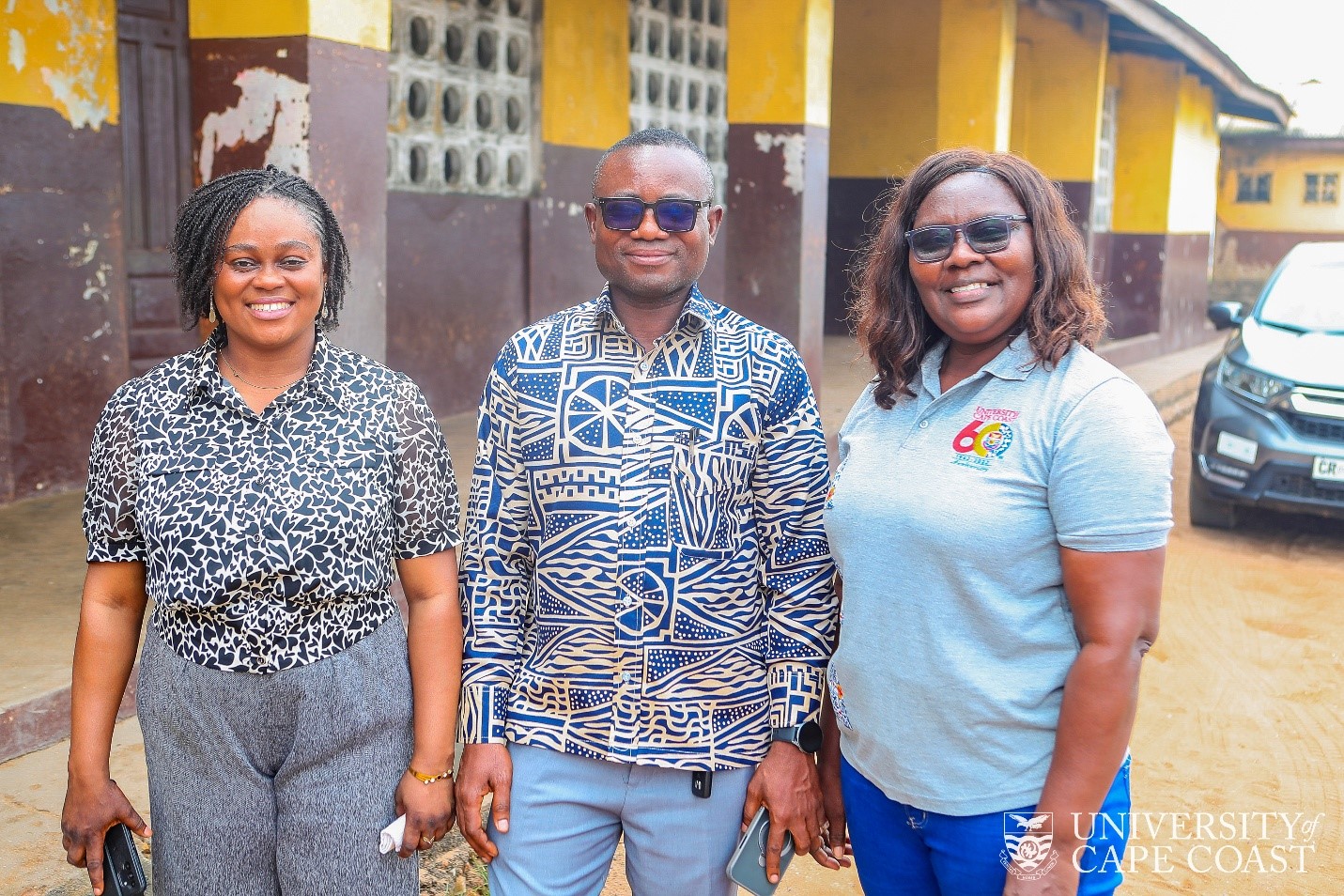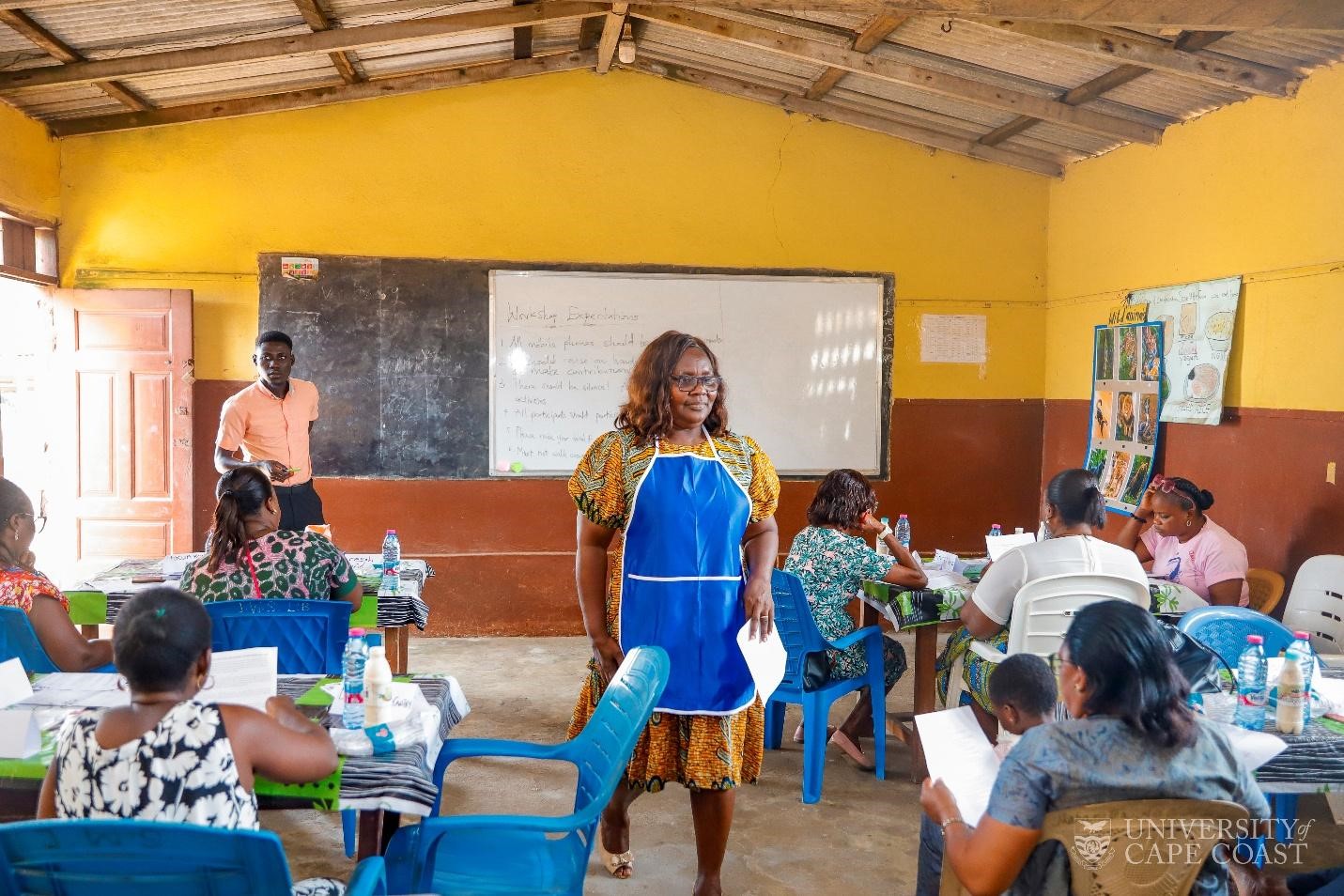A research team from the Department of Basic Education at the University of Cape Coast (UCC) has organised a two-day workshop for early childhood educators, aimed at enhancing foundational learning through the integration of creative arts into Science, Technology, Engineering, Arts, and Mathematics (STEAM) education.
The research team members include; Prof. Isaac Buabeng, Dr. Joyce Esi Tawiah-Mensah and Ms. Bridget Amo-Darko. The event brought together educators from surrounding basic schools to share experiences, explore creative teaching strategies, and strengthen their skills for the benefit of young learners.
The workshop, themed “Enhancing Early Childhood Education through STEAM: Integrating Creative Arts to Strengthen Foundational Learning”, focused on equipping teachers with practical tools to make learning more engaging and holistic.
Prof. Isaac Buabeng, the Project Lead, highlighted the need for STEAM integration in Ghana’s education system, explaining that it builds on the STEM approach traditionally used in Junior and Senior High schools.
The research team members (L-R): Ms. Bridget Amo-Darko, Prof. Isaac Buabeng (project lead), Dr. Joyce Esi Tawiah-Mensah
“We were inspired by the global STEAM focus and the urgent need for the introduction of STEAM in Ghana.”, he explained. Additionally, he stated, “If you want to have critical thinkers, it starts from the foundational stage,” emphasizing the importance of training children in STEAM from an early age.
Prof. Buabeng admonished participants to take advantage of the training to enhance their capacity to influence policy-making.
The programme featured several interactive and hands-on sessions designed to connect theory with practice.
Dr. Joyce Esi Tawiah-Mensah led a practical demonstration titled “My Environment: Shapes Around Us”, guiding participants through an exhibition at the STEAM hub where they explored artefacts and identified shapes present in everyday surroundings.
Ms. Bridget Amo-Darko engaged participants in interactive storytelling and drawing activities on animal habitats, followed by sorting exercises that teachers could adapt for their classrooms.
Dr. Joyce Esi Tawiah-Mensah facilitating one of the sessions
The resource team also introduced “Weather Wonders”, a session combining drama, music, and the use of weather instruments to show how creative arts can enrich science lessons.
The research team expressed hope that the training would inspire a broader adoption of STEAM approaches in early childhood education nationwide.
Source: Documentation and Information Section-UCC



